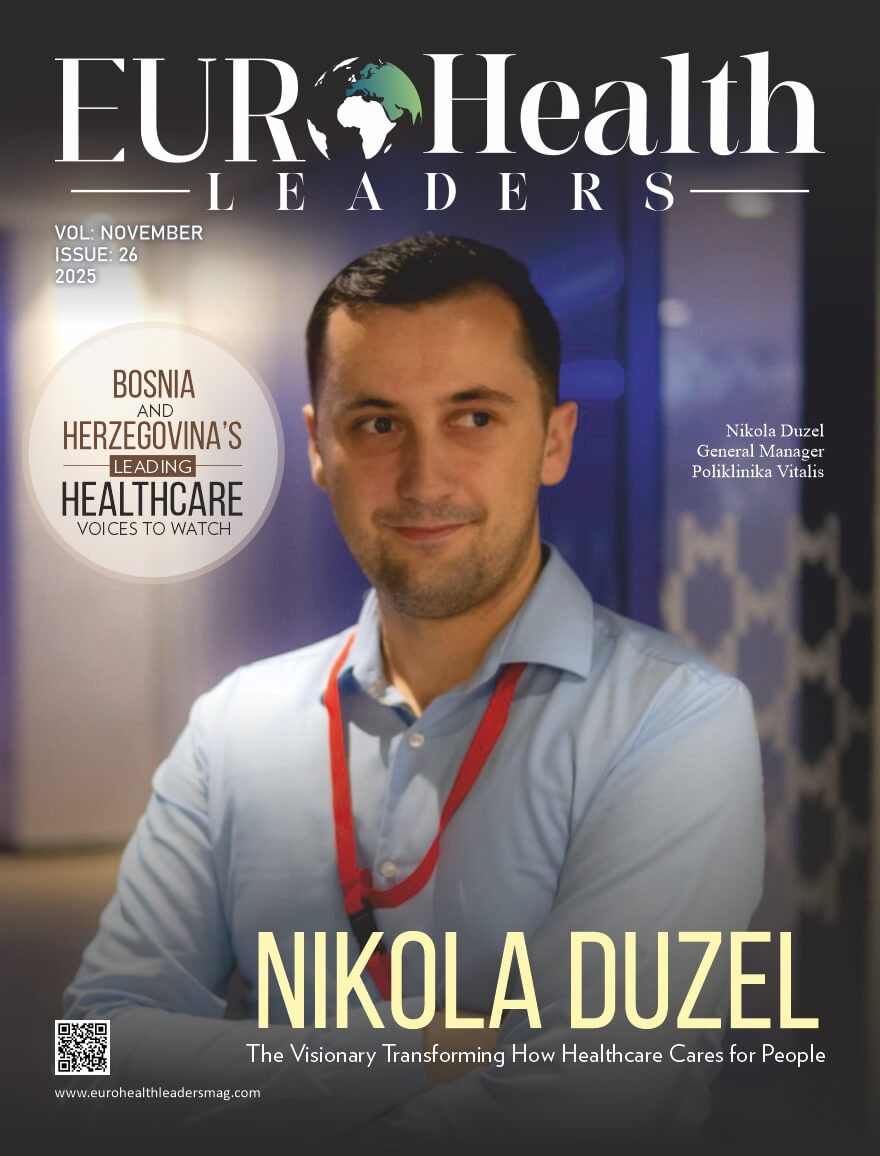Real change often begins with someone who sees the whole picture. For Rebekah Cresswell, that vision took shape early in her career as a nurse and health visitor, working closely with families affected by addiction. She saw the toll it took, not just on individuals, but on their loved ones, their futures and their sense of hope.
Those early experiences sparked a lasting commitment to care that goes deeper than clinical treatment. As Rebekah moved into leadership, she carried with her a belief that recovery must be rooted in compassion, connection, and a true understanding of each person’s story.
Now, as Chief Executive Officer of Priory, she leads the UK’s largest independent provider of mental health and adult social care. Having more than 280 sites and tens of thousands of people supported each year, Priory plays a vital role in helping individuals rebuild their lives. Under Rebekah’s guidance, the organisation continues to grow its reach while staying true to its purpose of helping people live as fully and independently as possible.
Her leadership is shaped by both clinical expertise and a strong sense of humanity. She champions innovation, inclusion and equity in care. Additionally, she also mentors women across the sector, creating space for others to lead with confidence and clarity.
Rebekah’s journey is one of purpose and impact. Through her work at Priory, she is helping transform how recovery is delivered and who gets to lead the way forward.
Let’s delve into the interview details below!
Can you share a bit about your journey in the addiction recovery sector and what led you to your current role at Priory?
I began my career as a health visitor in Liverpool and Manchester, where I witnessed first-hand the devastating impact of addiction on families and communities. These experiences shaped my belief that recovery must address the whole person, not just substance misuse or addictive behaviours. It is an illness, not a choice.
I trained as a nurse and completed a nursing degree when they were less common, which gave me a strong foundation in leadership and a drive to challenge convention. I later moved into roles in clinical quality, safeguarding, regulation, and operations – first within the NHS, then at Priory, which I joined in 2012. I became CEO in 2021.
My commitment has always been to improve outcomes for vulnerable people, especially those facing both mental ill health and addiction.
What key principles guide your leadership in addiction recovery?
Compassion, pragmatism and collaboration are at the core of my approach. Addiction is rarely isolated – it’s often tied to trauma, mental health and socioeconomic issues. At Priory, we put the person at the centre and offer a fully integrated care pathway – with co-located inpatient detox, therapy, mental health and supported living expertise.
Recovery isn’t linear, so services must be flexible. We support people across 70 conditions without treating them in silos. Innovation is also key; we’re always striving to improve outcomes and break access barriers.
What challenges do women face in leadership roles within the sector, and how do you navigate them?
Unconscious bias sadly still exists. I’ve faced assumptions about my capabilities based on outdated views. Often the issue for women isn’t a lack of skill but a lack of opportunity or support.
I mentor at least one woman a year to build confidence and encourage progression. I also advocate for workplace flexibility – if we want more women in leadership, we must support their wider commitments. At Priory, we back women in pursuing qualifications and leadership roles; many have recently completed master’s degrees…achieving an academic qualification to back up years of experience.
How is Priory making a difference in addiction recovery, particularly for women?
We take a trauma-informed, person-centred approach. Many women seeking support have experienced domestic abuse or coercive relationships. We offer gender-specific therapy groups, often led by female therapists, and carefully match patients with keyworkers to ensure comfort and trust.
Peer support is also vital. We link women with local AA groups and provide 1:1 therapy and aftercare. Recognising that many can’t commit to a 28-day programme, we offer outpatient and day care options to reduce barriers to access and have exciting plans to expand our offering further.
What innovative strategies has Priory implemented to improve recovery outcomes for women?
We aim to tailor our services to reflect women’s lived experiences. This includes gender-specific therapy sessions, trauma-informed care pathways and education around coercive control and body image – issues often intertwined with female recovery.
We also collect gender-specific outcomes data to adjust care pathways. Although women make up a smaller share of our addiction cohort, they often show higher sobriety rates at 12 months and stronger engagement in therapy – highlighting the importance of accessible, responsive care.
Key innovations include:
- Embedded dual-diagnosis care, with therapists trained in both addiction and mental health.
- Eating disorder and body image support.
- Community involvement, where our specialists connect with external groups.
- Regular analysis of outcomes to inform and evolve practice.
91% of our addiction service users with paired data improved in mental health on discharge – clear evidence that holistic care works.
What keeps you inspired in this work?
The human stories. Every statistic represents someone’s child, partner or parent fighting to reclaim their life. Witnessing people reconnect with loved ones or rediscover hope is incredibly powerful. It is not just the person in treatment whose life changes positively but also their family. It has a wide-reaching impact.
I’m also inspired by our dedicated staff, many of whom have personal connections to addiction and are there to help others. And, finally, the sheer urgency of the need motivates me.
In 2023–24, more than 310,000 adults accessed drug and alcohol services – the highest figure since 2009 – and more than 8,200 people died due to alcohol in 2023, up 42% on 2019. Addiction services in the UK are fragmented, and we must, collectively, do better to develop services that meet demand across society and help people to live their lives fully.
How do you see the role of women evolving in this field?
I see more women entering leadership, but progress needs to accelerate. We must challenge outdated perceptions, support flexible careers and recognise leadership potential early.
Women have always played vital roles as carers, therapists and advocates. Now we need to see more in boardrooms and at policy tables. At Priory, we’re working hard to make leadership more accessible and inclusive so that the sector reflects those we support.
What advice would you give to aspiring female leaders in this field?
Go for it. Your lived and professional experiences matter. Seek opportunities to grow, take on new challenges and find mentors who will support and push you.
Advocate for yourself and, once you’re in a position of influence, support other women. That’s how meaningful, lasting change happens – and it’s already happening at Priory.









